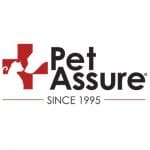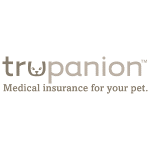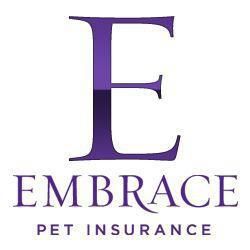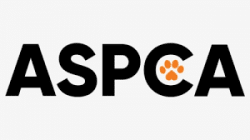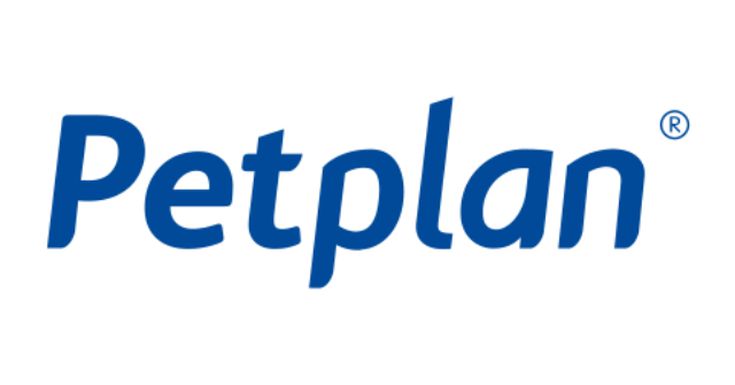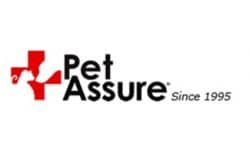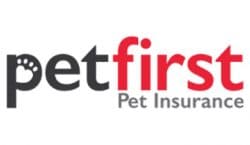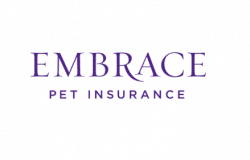Buying Guide on Pet Insurance
What Does Pet Insurance Cover?
Most pet insurance companies offer coverage for unexpected illnesses and accidents for cats and dogs. There are a few insurance companies that offer coverage for exotic pets as well, like rabbits, parrots, guinea pigs, gerbils, etc.
When you take out a pet insurance policy, there is some coverage that comes as standard. These include payout for:
Chronic, hereditary and congenital illness: This includes the reimbursement of life-threatening illnesses like cancer, allergies, urinary tract infection, arthritis, and others, depending on the unique coverage of the pet insurance company. Pet health insurance is also included for conditions like heart disease, eye disease, and intervertebral disc disease. Coverage for hip dysplasia may or may not be included.
Accidental injuries: Pet emergency care including poisoning, bite wounds, bone fractures, torn ligaments, and cuts and scrapes. The coverage can typically be used to pay for pet medication, diagnosis, blood tests, IV fluid, exam fees, hospitalization and surgery.
Vet exam fees: These include the consultation and medical exam fee for covered illnesses and injuries but not preventive or pre-existing ones.
Dental coverage: Not all pet insurance companies offer dental coverage or only give limited coverage. Those that do, provide reimbursement for periodontal disease, tooth extraction, cysts, enamel issues, unerupted and primary teeth issues, and illness-related dental cleaning.
Alternative rehabilitative therapies: This involves covering the cost of pet physical therapy, pet rehabilitation, acupuncture, chiropractic, homeopathy, and hydropathy.
Prescription medication: These include reimbursement for medication, injections, and nutritional supplements subscribed for pets.
Wellness and preventive care: Only a few insurance plans offer pet wellness plans and preventive care like grooming, ear cropping and tail docking as part of the standard package. Some offer it as a rider, while others do not cover these expenses at all.
Special expenses: These include microchipping, stem cell therapy, laser therapy, euthanasia administration, cremation, and burial expenses. They are offered by some top pet insurance companies.
Advertising costs and rewards: These include reimbursement for advertisement for lost pets and any rewards given to the finder. This may or may not be included in a pet insurance policy.
What Does Pet Insurance Not Cover?
Each top rated pet insurance company has developed its unique pet health insurance package and markets them as their USPs. This means that every pet insurance company covers something that its competitor does not. Typically, there are a few pet insurance exclusions that are common amongst most companies.
These include:
Pet pregnancy: Typically whelping, breeding, and queening expenses are not covered by most pet insurance companies, though Trupanion does cover illnesses and injuries related to pet pregnancy through its Breeder rider package.
Spaying and neutering: Most companies do not offer spaying and neutering expense reimbursement as they are elective services; however, you can pay for spaying and neutering through Embrace’s Wellness Rewards plan.
Pre-existing conditions: Pre-existing conditions are not generally covered by pet insurance companies. You will need to read the fine print to find out what each pet insurance company considers a pre-existing condition. Some companies may cover you if your pet has not shown symptoms of the condition for six months before you started the plan.
Behavioral modification therapy: Pet insurance plans may or may not cover behavioral modification therapy like aggressiveness, scratching, fur pulling, and excessive licking. Some companies offer add-on rider packages which include behavioral modification therapy, but do not include it in their main plans.
Liability: Liability may arise from the actions of your pet, for example, if your dog gets into a fight with another dog or breaks a window of your neighbor’s house. These things are often not covered by pet insurance.
Renewal exclusions: Upon renewal, some pet insurance companies may also exclude coverages that were included in the previous policy, like a discovered illness that was reimbursed previously.
Insurance dog breed exclusions: There are some dog breeds which are blacklisted by a few pet insurance companies, owing to high incidents of dog bites and aggressive behavior associated with them. Some dog breeds are Rottweiler, Pitbull, German Shepherd, and Akita.
Aside from this, as we mentioned in the previous section, some pet insurance may also exclude or provide limited services for dental care or wellness coverage. Some exclude or provide limited coverage for vet exams, blood tests, and prescriptions.
What Type of Pet Insurance is Best For Me?
The best pet insurance for cats, dogs, and /or exotic pets offer a variety of coverage plans and limits. These include:
Accident only pet insurance: In this type of coverage plan, the company reimburses you for emergency accidental injuries, like your pet getting hit by a car or falling down the ledge. This type of coverage does not handle breed-specific conditions or illness coverage and is quite affordable.
Time-limited pet insurance: This type of coverage comes with an expiration date, typically about 12 months, after which the policy that provides cover for short-term illnesses and accidents would lapse.
Maximum benefit pet insurance: This is also known as “per condition” cover and involves a fixed amount of money that can be reimbursed to treat each injury or illness. Once the maximum amount for a condition has been reached, you will no longer be covered for that condition and will not be eligible for future payouts.
Lifetime pet insurance:This is the most comprehensive and hence the most expensive coverage plan. It includes two pet insurance types: per condition per year cover and annual lifetime cover.
In per condition per year cover, the insurance company offers you a fixed maximum amount for each condition for the year. Anything beyond the amount, you will need to pay yourself. The policy will reset after the year ends. Annual lifetime cover offers you a total fixed amount for all conditions which will reset after the year ends.
Do they have special pet insurance for dogs and cats?
Some pet insurance companies also offer special pet insurance in the form of rider packages. These may include coverage for laser therapy, stem cell therapy, vet-administered euthanasia, cremation, and burial expenses.
What are the Expected Costs of Pet Insurance?
According to our estimates of the best pet insurance for dogs and cats, pet health insurance is not that expensive, particularly if you consider the average cost of keeping a dog or cat is between $700 and $1000 a year. A major medical condition can cost upward of $10,000, without pet insurance.
According to the pet insurance companies we evaluated, the expected monthly cost for dog insurance is between $42 and $49.
The average monthly premium for cat insurance is between $20 and $30.
Keep in mind though that these numbers are just averages and the cost in reality can be lower or higher than this, depending on several factors like your pet’s health, age, condition, location, breed, and more.
The majority of insurance companies cover only cats and dogs, but there are a few like Nationwide and Pet Assure, that offer coverage for exotic pets, like several varieties of birds, rodents, reptiles, fish, and amphibians, as well.
Since these animals vary so much, their pet insurance costs per month are more difficult to calculate. You can ask a few chosen pet insurance providers what premiums they charge for a certain kind of exotic pet. An advantage of exotic pet insurance is that they also offer coverage for pet escape or theft.
How Can I Reduce the Cost of Pet Insurance?
Here are some ways you can reduce your pet insurance cost.
Paying a higher excess or deductible: Lowering the reimbursement percentage or raising the deductible will allow you to pay a lower monthly premium. Depending on your policy, you may be allowed to choose a reimbursement percentage between 70% and 90% with an annual maximum limit.
Checking the level of cover: You may be paying more for a comprehensive plan, even though your pet is young and healthy and does not require too much coverage. In this case, you can downgrade to a smaller plan. Some insurance companies also let you customize your insurance plan to suit your pet’s needs.
Multi-pet insurance discount: If you have multiple pets on a policy, you may be eligible for a 5% to 10% multiple pet insurance discounts.
Diminishing deductible: Some companies reduce the amount of deductible if you can show proof that your pet did not make any accident or injury claims in the previous year.
Spaying/ neutering: Some pet insurance companies like Embrace offer a small discount if your pet is spayed or neutered before you start a policy.
Guide to Buying Pet Insurance
Here is a step-by-step guide to buying pet insurance:
- Choose a coverage level: Pet insurance companies offer you different coverage levels. These include accident-only, comprehensive, annual policies, and lifetime policies (described above). You can choose the one that fits your pet’s needs.
- Choose a deductible: Depending on the company, you may be charged an annual or a per-condition deductible. Typically, if you want a lower deductible, you will have to pay a higher premium, and vice versa.
- Choose a reimbursement amount: Pet health insurance companies may offer you a reimbursement percentage from 70% to 90%. If you want policies with 90% reimbursement, you will have to pay a higher deductible or premium.
- Pay monthly premiums: After choosing your policy you can start paying your premiums, either on a monthly or an annual basis. If you pay annual premiums, you may be able to get a small discount.
- Get treatment from a licensed vet: When your pet is sick or injured, you can take them to any licensed vet and they will accept the insurance.
- Pay your vet directly: Most vets will require you to pay in advance, but if the bill is too large, they may agree to wait until you have been reimbursed by the insurance company. There are some pet companies like Trupanion Pet Insurance which uses Vet Direct Pay to transfer funds directly to the vet.
- Get reimbursed: To get reimbursed, all you need to do is to submit a claim by providing proof of your pet’s condition and your vet’s bill. All the paperwork will be sent to the insurance company which will determine whether your claim is valid or not and then reimburse you the money. This process can take anywhere from 2-6 days.
Is It Worth Getting Pet Insurance?
A pet can cost you up to $1,000 annually and this amount can increase exponentially if your pet gets critically sick or injured. Unless you have considerable savings dedicated to your pet, you definitely need a pet insurance policy.
To assess pet insurance pros and cons, we will look at some factors, like cost, coverage levels, etc.
Pet insurance is worthwhile if your pet needs a high level of care. Pets that are young and healthy will create less expenses than pets that are older. Although you cannot tell when your pet will get sick or injured, if such an incident happens, insurance can guarantee payout for a certain amount of cost, which can save you thousands of dollars.
Additionally, most people do not think that routine wellness coverage is worth the cost, but for accidents and unexpected injuries, pet insurance is totally worth the cost. Plus, the peace of mind you get from buying pet insurance is invaluable.
In Conclusion
Here we came to the end of our analysis. We hope that our best pet insurance reviews helped you gain a better understanding of the difference between the insurance companies and make an informed discussion.









